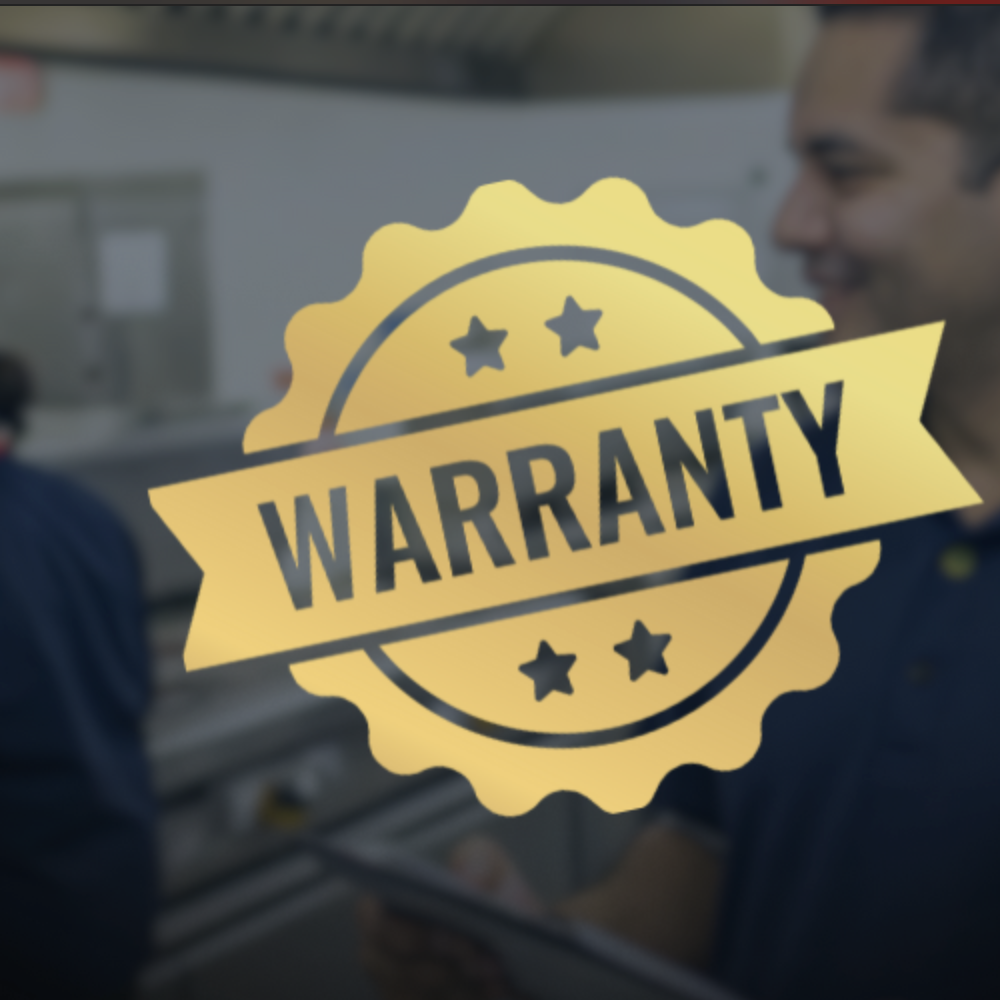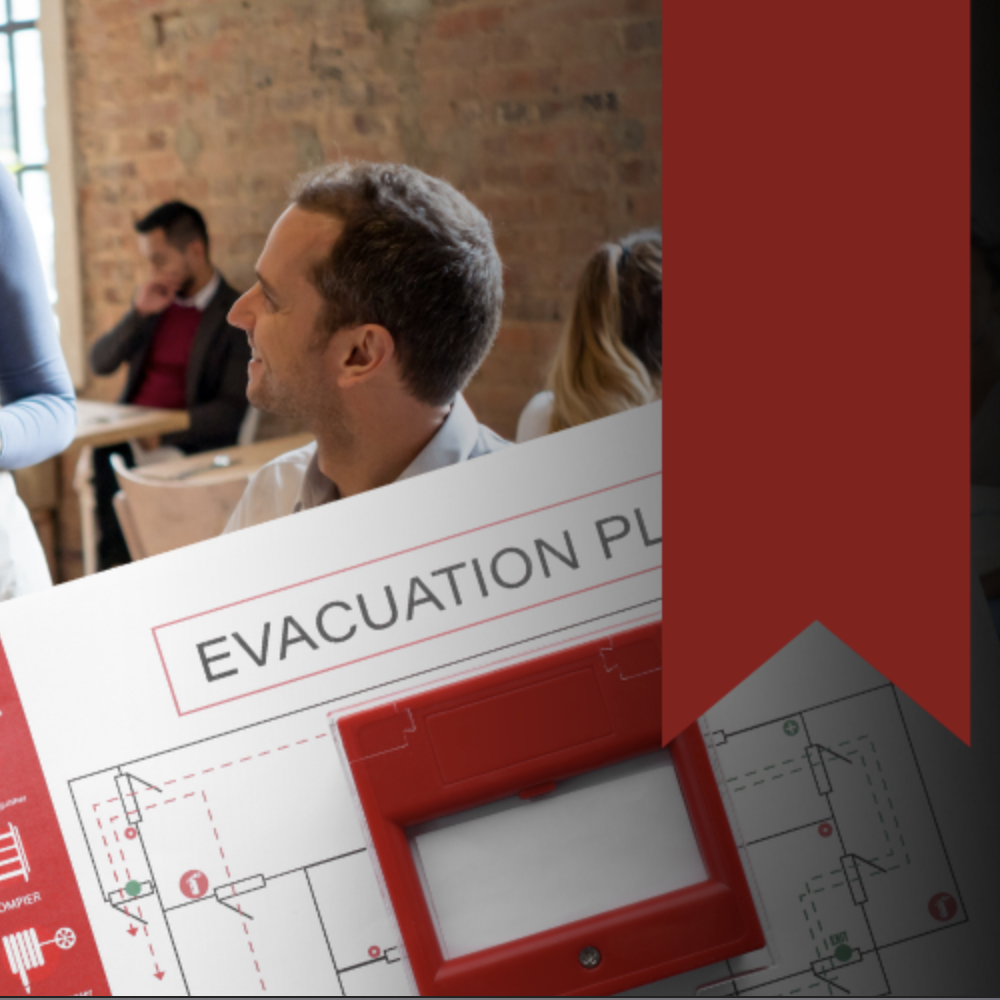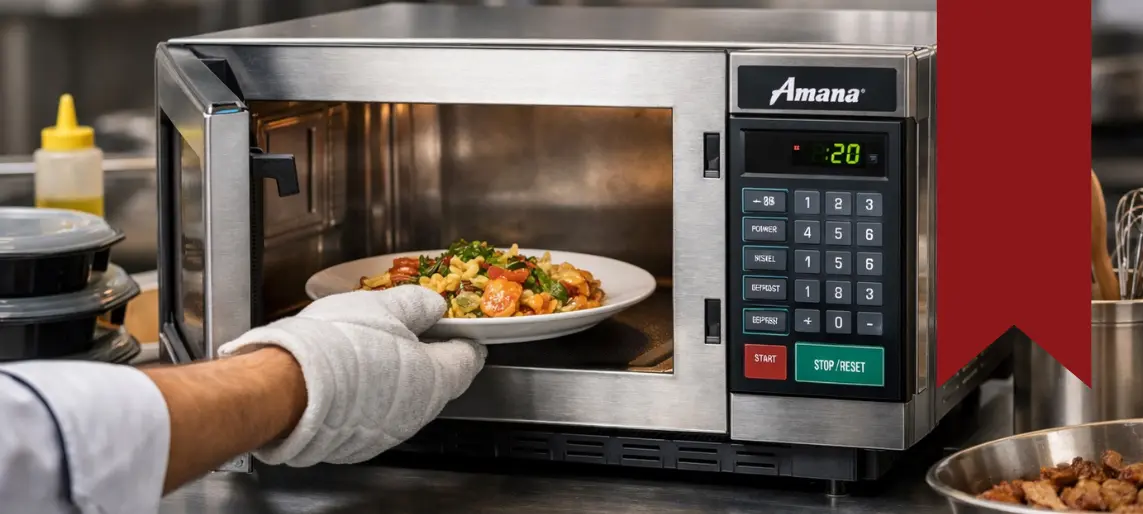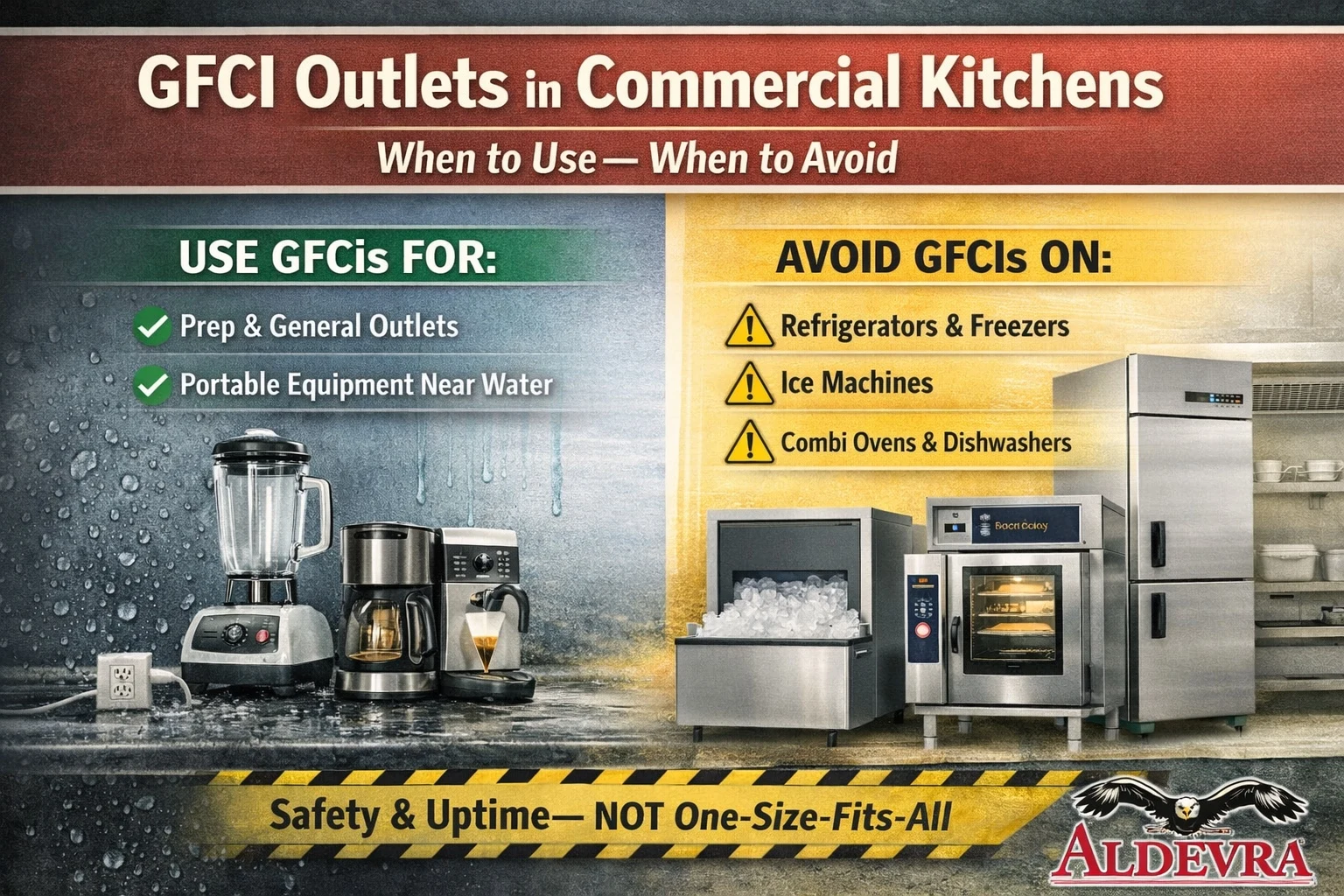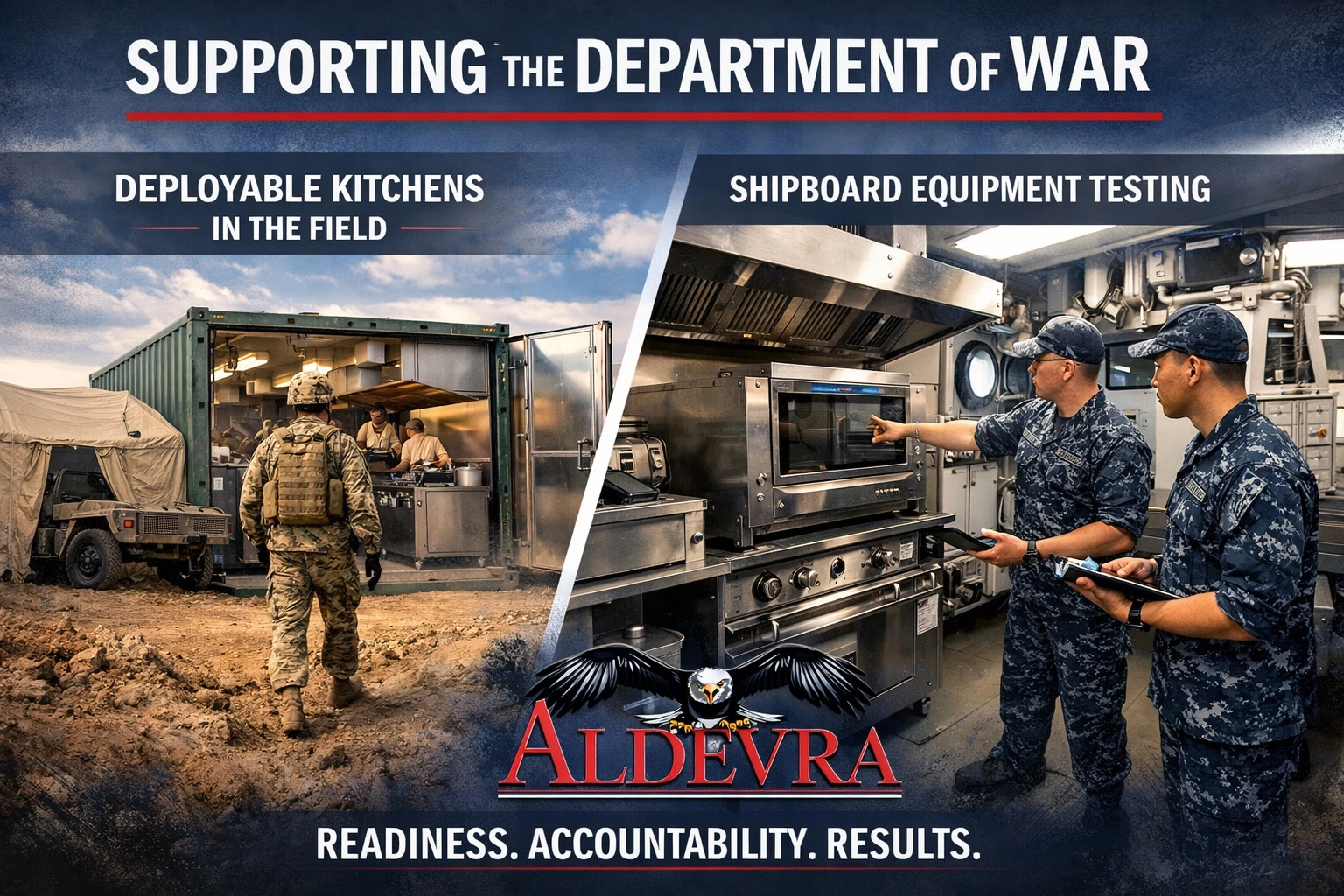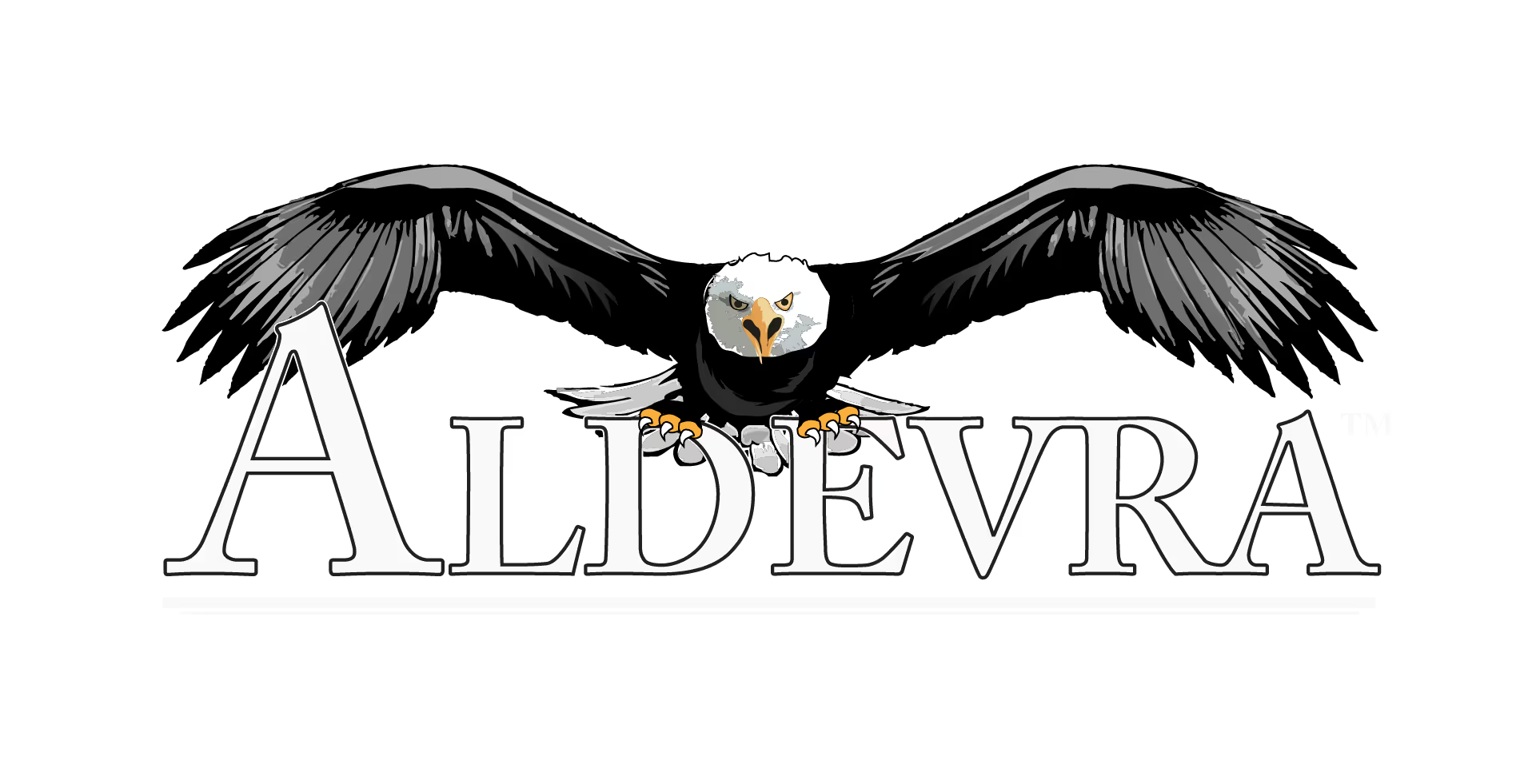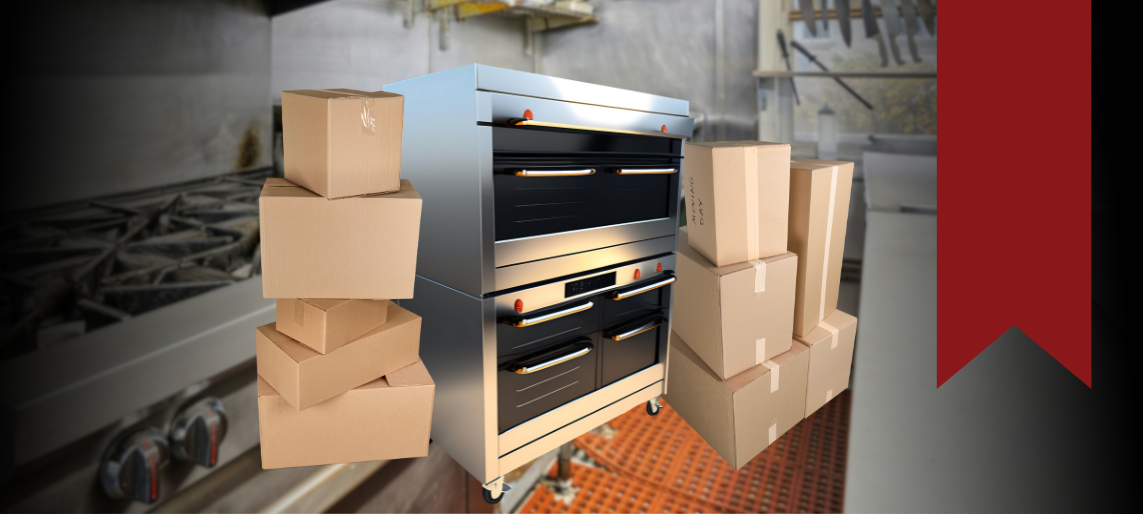
Summary
At a Glance
Kitchen equipment projects often go off track because of:
- Delays in quotes, orders, or shipping
- Miscommunication between vendors and customers
- Site readiness problems (utilities, access, downtime)
- Freight damage or missing pieces
- Gaps in installation oversight and follow-up
How we prevent it:
- Formal SOPs and checklists at every stage
- Order and spec verification before build
- Pre-install surveys, photos, and utility checks
- OSHA-30 certified project managers on installs
- Progress calls, cost tracking, and closeout reviews
Result: Projects in federal, healthcare, education, and correctional facilities stay on scope, schedule, and budget.
What Could Get in the Way of Your Project
Installing commercial foodservice equipment in federal facilities, hospitals, schools, and correctional institutions isn’t simple. From the moment you ask for a quote until the day equipment is up and running, dozens of details can derail the project like delays, miscommunications, damaged shipments, site readiness issues, and more.
Most dealers don’t have a formal process for managing all these moving parts. But we do. We’ve built a disciplined SOP and checklist-driven approach that keeps projects on scope, schedule, and cost.
Here’s the full field guide to what can go wrong and how we prevent it.
1. Quotes and Orders: The First Pitfall
What goes wrong:
- You asked for X, but the quote lists Y — wrong orientation, missing accessories, or unclear specs.
- Utility requirements are buried in the fine print and missed.
- Multiple customer reps give different directions, leaving the dealer caught in the middle.
- Once the order is in the factory, changes are costly or impossible.
- Quotes don’t include assumptions about install, storage, downtime, or utilities — leaving room for misunderstanding.
Aldevra’s safeguards:
- Customer order acknowledgement of quote before issuing orders to manufacturers.
- Order confirmation checks with factory against the purchase order sent.
- If manufacturer drawings are available, we send them to the customer to verify dimensions, clearances, door swings, and utilities.
- Single point of contact (POC) required so conflicting instructions don’t cause chaos.
- Assumptions added to quotes so expectations are clear: site readiness, utility verification, storage charges if delivery is delayed, etc.
- Quoting team improvements: errors are shared as lessons learned; optional project manager oversight line item may be included; for VA projects, we ask upfront about infection prevention, fire watch, ICRA, PCRA and other requirements.
✅ Lesson learned: Clarify everything before the factory builds it.
2. After the Order: Supply Chain Surprises
What goes wrong:
- Equipment backordered or substituted.
- Freight damage or missing pieces.
- Equipment delivered too early, with nowhere safe to store it.
- Customer doesn’t inspect equipment at delivery — damage claims get denied.
- Discontinued models automatically replaced by factories without customer awareness.
Aldevra’s safeguards:
- Equipment Tracking Spreadsheet with PO, expected ship, actual ship, carrier, tracking, and shipping destination.
- Customer approval required for substitutions. Even if a manufacturer replaces a discontinued model.
- Inspection reminders: if equipment arrives before installation, inspect immediately, keep packaging, and notify us ASAP.
- Follow-up with manufacturers to confirm ship dates so nothing is forgotten.
✅ Lesson learned: Damage happens. Catching it right away makes all the difference.
3. Site Readiness: The #1 Cause of Delays
What goes wrong:
- Utilities not in place, wrong size, wrong phase, or too far from the equipment.
- Refrigeration assumptions missed (is it self-contained or remote? If remote, how far, and is it going on a roof?).
- Access paths (doors, hallways, elevators) are too small for the unit.
- Site not cleared, floors uneven, or old equipment not removed.
- No plan for downtime when the kitchen is disrupted.
Aldevra’s safeguards:
- Kickoff meetings with agenda: scope, roles, milestones, safety, compliance, and site readiness.
- Pre-install surveys strongly encouraged. Ideally before equipment is even ordered. At minimum, we require the customer to verify utilities onsite.
- Photo verification: customers can send photos of utility hookups and equipment data plates (with volts, amps, BTU, PSI, etc.) to confirm one-for-one swaps.
- Pre-logistics calls with customer, installer, facilities, engineering, and safety — guided by our Pre-Install Logistics Form.
- Downtime planning: we remind customers that kitchens will be interrupted. Sometimes the solution really is “paper plates until the dishwasher is ready.”
✅ Lesson learned: If utilities aren’t ready, the project won’t move forward. Confirm them early, even before ordering equipment.
4. During Installation: Where Projects Win or Lose
What goes wrong:
- Hidden conditions like outdated wiring or structural issues.
- Wrong hookups — gas, water, or electrical incorrectly sized or connected.
- Third-party tie-ins (Ecolab chemicals, fire suppression, monitoring systems) not coordinated.
- Safety lapses — no hot work permits, infection control, or lockout/tagout.
- Subcontractors overstep, discuss cost or schedule in front of customers, or miss compliance requirements.
Aldevra’s safeguards:
- OSHA-30 certified project managers oversee installs, spotting safety issues before they become incidents.
- Installer briefings with updated drawings, scope, and safety plan.
- Onsite oversight: we encourage customers to pay for an Aldevra Project Manager onsite to coordinate in real time.
- Subcontractor controls:
- POs issued with scope included
- Deliverables verified before invoices are approved.
- Subcontracts revised with scope changes
✅ Lesson learned: Most delays aren’t about the equipment; they’re about the environment it goes into.
5. After Installation: Startup and Handover Risks
What goes wrong:
- Equipment not calibrated or tested.
- Staff not trained to use or clean new equipment.
- Warranty confusion.
- Missing manuals.
Aldevra’s safeguards:
- Factory startup & calibration (when required).
- User training on operation, cleaning, and maintenance, if specified.
- Documentation packet with manuals and warranties.
- Warranty support: customers contact us first, and we also provide factory contacts.
- Written warranty clarifications obtained from manufacturers when questions arise, so customers have authoritative documentation.
✅ Lesson learned: Installation isn’t complete until the staff knows how to use the equipment and the warranty is secured.
6. Closeout and Continuous Improvement
What goes wrong:
- Dealers walk away after installation with no follow-up.
- No opportunity for feedback or recognition.
Aldevra’s safeguards:
- Project Closeout Form — customers rate quality, schedule, communication, responsiveness, compliance, and satisfaction.
- Formal completion agreement confirming all deliverables are accepted.
- Recognition and feedback — we celebrate staff wins and identify improvements.
- Customer-specific closeout forms — if the agency has its own required paperwork, we complete those too.
- Lessons learned reviews — every project is debriefed so improvements are fed back into our SOP.
✅ Lesson learned: Closing strong builds trust and creates a roadmap for continuous improvement.
7. Internal Oversight and Cost Tracking
What goes wrong:
- Projects drift without oversight.
- Costs creep above budget without notice.
Aldevra’s safeguards:
- Weekly PM + leadership reviews of every active project to surface risks early.
- Regular progress calls with customers to review scope, schedule, and cost.
- Meeting minutes sent after every call to keep everyone aligned.
- Budget vs. actual cost tracking built into every project.
✅ Lesson learned: Oversight isn’t just at the project level. Our leadership is involved in every project.
8. Lessons Learned: Insider Tips from the Field
Over time, we have built a deep playbook of lessons that most dealers never capture:
- Utilities, utilities, utilities: Always confirm readiness early. Ask for photos of data plates and hookups.
- Refrigeration: Confirm whether it’s self-contained or remote — and if remote, where it’s going (roof, mechanical room, how far from the box).
- Freight: Inspect immediately, keep packaging, and notify us ASAP.
- Downtime: Plan for kitchen interruptions. Sometimes the answer is as simple as paper plates.
- Third parties: Coordinate Ecolab, fire suppression, and monitoring vendors early.
- Subcontractors: Collect insurance upfront; issue clear POs with scope outlined clearly; don’t pay until deliverables are received; discourage subs from direct customer cost/schedule conversations.
- Documentation: Print paperwork in advance. Many sites don’t have Wi-Fi or cell service.
- Safety: Pre-Construction Risk Assessment (PCRA)/Infection Control Risk Assessment (ICRA) in hospitals, lockout/tagout, infection control barriers, photos before/after work.
- Contracts: If the government shifts the period of performance without consent, request a MOD or equitable adjustment.
- Storage & financing: If equipment has to be stored, account for storage fees and interest costs.
- Communication: Give choices (“A or B”), follow up relentlessly, and know your audience.
- Closeout: Ask if the customer has their own required documents. Complete those in addition to ours.
✅ Lesson learned: We don’t just finish projects; we learn from them and bake improvements into the next one.
The Aldevra Advantage
Most dealers just process the order, arrange delivery, and hope the installation goes smoothly. We do so much more:
- Formal SOP and checklists at every stage.
- Kickoff meetings and pre-logistics calls with stakeholders.
- Equipment tracking spreadsheets for full visibility.
- OSHA-30 certified project managers overseeing installs.
- Safety-first approach in healthcare and correctional settings.
- Regular progress calls and meeting minutes for alignment.
- Budget vs. actual cost tracking for financial control.
- Closeout forms and lessons learned for accountability and improvement.
Bottom line
With us, you don’t just get equipment delivered — you get a structured, compliant, safe, and transparent process from start to finish. That’s why federal agencies, hospitals, schools, and correctional facilities trust us with their most critical foodservice projects.
📞 Ready to make your next project boring (in the best way)?
Contact us today at sales@aldevra.com or (269) 350-1337.
FAQs
Why was my kitchen equipment delivery delayed?
Delays often happen due to missing measurements, outdated specs, or incomplete site readiness. Double-checking utilities, layout, and install requirements can help avoid these issues.
How can I avoid installation problems?
Review the site’s physical layout, utility access, and documentation requirements before ordering. Work with vendors who provide install resources and equipment details early.
What mistakes do facility buyers make?
Common mistakes include using the wrong spec sheet, skipping fit checks, or assuming the product is GSA-approved. Clear communication with vendors helps prevent order delays.




